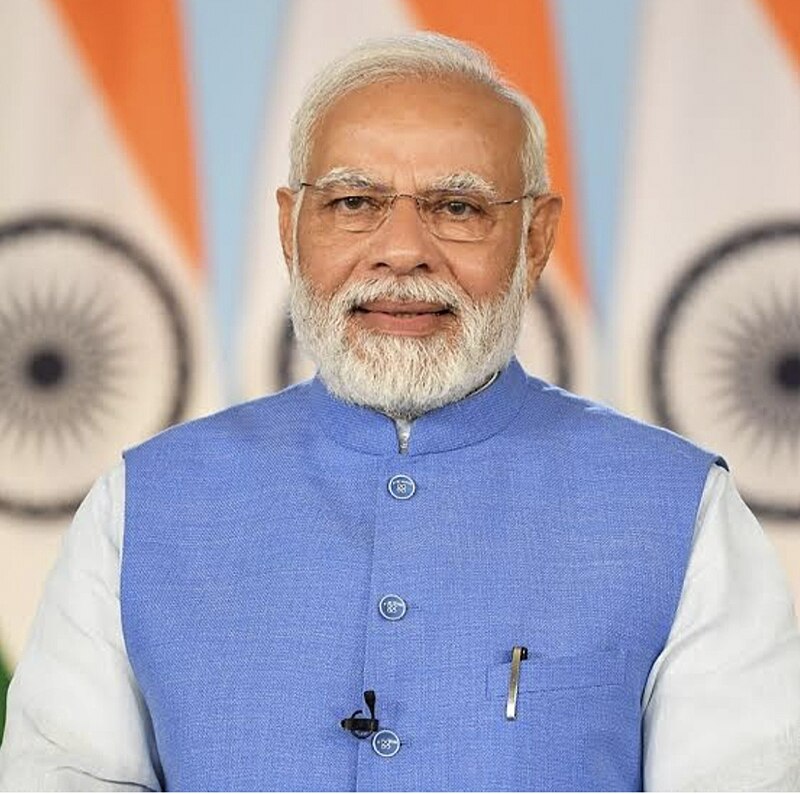13 Mar , 2024 By : Debdeep Gupta

Made-in-India chips will propel the nation towards Atmanirbharta and Adhunikta: PM Narendra Modi, The 21st century is tech-driven and you can't imagine it without chips, says Prime Minister Narendra Modi
While laying the foundation stone of three new semiconductor projects worth Rs 1.26 lakh crore in the country, Prime Minister Narendra Modi said on March 13 that made-in-India chips will help put the country on the path of self-reliance and technological advancement.
“The 21st century is tech-driven and you can't imagine it without chips. Made-in-India chips will help push India towards Atmanirbharta and Adhunikta. Today we are creating history and taking a big step toward a bright future for India... This will help make India a global hub of semiconductor manufacturing,” Prime Minister Modi said.
“India commits, India delivers and democracy delivers. Only a few countries manufacture semiconductor chips today. The Covid pandemic taught us that the world needs a resilient supply chain. Through incentive schemes, India has given a new avenue of opportunity to our electronics industry. India is today one of the biggest manufacturers of mobile phones. We have started the national quantum mission. IndiaAI's mission is progressing fast. We are on the path of technological advancement,” he added.
India’s first semiconductor fabrication plant or fab is to be set up by Tata Electronics and Taiwan’s Powerchip Semiconductor Manufacturing Corp. (PSMC) in Gujarat’s Dholera at an estimated cost of Rs 91,000 crore.
This fab will mostly produce 28 nanometres (nm) chips, apart from 50 nm, 55 nm, and 90 nm ones, and have 16,000 suppliers.
These will be power management chips for electric vehicles (EV), telecom, defense, automotive, consumer electronics, display, power electronics, etc. Power management chips are high voltage, high current applications.
“Today is a special day for India and Tata Group. These semiconductor plants will be very important for the nation. PSMC has given us access to a wide portfolio of technology. Semiconductor is the foundational industry for everything digital. We will create more than 50,000 jobs and this is just the beginning,” Tata Sons chairman N Chandrasekaran said at the foundation stone laying ceremony.
“Chip shortages during the pandemic made us realize our dependence on the international supply chain. The domestic semicon industry is integral to the indigenous industry. Semiconductor chips have a defining role to play in every industry — auto, AI, defense, green tech, health, and every other industry,” he added.
The fab is one of the three chip projects worth Rs 1.26 lakh crore of investments approved recently under a Central incentive scheme, while one such plant by US semiconductor major Micron was given the green light last year.
The four projects are cumulatively expected to drain Rs 59,000 crore from the Rs 76,000 crore chip incentive scheme announced by the government in 2021.
On March 13, foundation stones were laid for three projects, one of which is a semiconductor unit in Morigaon, Assam. This unit will be set up by Tata Semiconductor Assembly and Test Pvt Ltd with an investment of Rs 27,000 crore and will have the capacity to produce 48 million chips daily.
The application of these chips will be in automotive, electric vehicles, consumer electronics, telecom, mobile phones, etc.
The third project that was flagged off on March 13 is a unit to be set up by CG Power in partnership with Japan’s Renesas with an investment of Rs 7,600 crore and build a capacity to produce 15 million chips per day. The unit will manufacture chips for consumer, industrial, automotive, and power applications.
CG power chairman Vellayan Subbiah said, "Agar Chips ka hain intezaar, toh India hain tayaar (If we were waiting for chips, India is ready today)... When I graduated from IIT, 140 of 290 students left for the US. This will no longer be the case. From now on we will build for Bharat."
Despite offering large subsidies, the government has been struggling until now to attract any major foreign foundry such as Intel, Samsung, or TSMC to the country. This comes at a time when advanced economies like the US, Germany, the European Union, and Japan have also announced substantial subsidy programs in a global race to dominate the semiconductor market.
However, during Prime Minister Narendra Modi's visit to the US last year, semiconductor major Micron committed to setting up a $2.7 billion assembling plant in the country. According to estimates, the Centre and state government of Gujarat will cumulatively bear 70 percent of the cost of the project in the form of subsidies.
Additionally, semiconductor equipment maker Applied Materials has said it would invest $400 million to design chipmaking machinery in the country and Microchip Technology has committed a $300 million investment to expand its semiconductor R&D footprint in India.
0 Comment